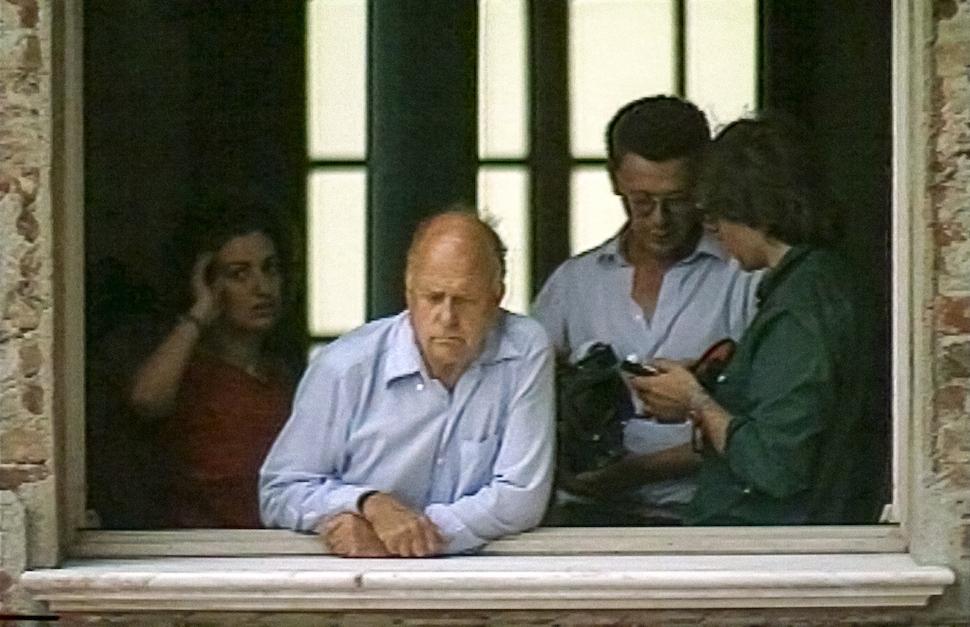Italy, France / 90’
language Italian, French
as themselves Jean Rouch
, Alberto Chiantaretto, Marco di Castri, Daniele Pianciola, Jane Rouch, Philo Bregstein, Gilbert Mazliah, Sabina Sacchi, Gianfranco Barberi, Françoise Foucault, Jocelyne Rouch
screenplay Marco di Castri,
Paolo Favaro
, Daniele Pianciola
cinematographer Marco di Castri, Daniele Pianciola
editor Marco di Castri
music Marco di Castri, Dedalus
sound and color grading Paolo Favaro
Marco di Castri, Paolo Favaro, Daniele Pianciola - L’enigma di Jean Rouch a Torino. Cronaca di un film raté (Clone)

SYNOPSIS
At the beginning of the 80s the famous French ethnographer and filmmaker Jean Rouch, one of the leading spirits of the Nouvelle Vague, left the Niger River and the Dogon people behind and came to Turin to make a movie with three of the city’s young filmmakers. The documentary tells the story of what was a true “laboratory of ideas” and the birth of the film that came out of it (Enigma, by Jean Rouch and Alberto Chiantaretto, Marco di Castri and Daniele Pianciola), reconstructing the two years that passed between Rouch’s arrival and the conclusion of the project through the voices of its main protagonists, in dialogue with some extraordinary material: over twenty hours of the “making of,” perhaps the most complete documentation of a process of cinematic creation and certainly the most complete documentation of the way Jean Rouch worked, of how he animated the set and that undefined place beyond the set, where human aspects and technical and creative ones came together, becoming part of the film, in the manner of cinéma verité. A hundred years after his birth, this exceptional record constitutes a tribute to the great ethnographer and a novel account of his unknown Italian “adventure.”
DIRECTORS' STATEMENT
How could a seventy-year-old Frenchman who always dressed the same way, who wore neither a watch nor glasses (even though he was shortsighted) but recognized you straightaway and could always tell where he was without any need for GPS, how could he have fascinated some Italian filmmakers to the point of dragging them into an exploration not of Africa, but of their own territory in search of traces that only he was able to discern? We too belong to the ranks of his “children,” of those who remember him and hand down those memories. And as such we pay homage to our forefather, just as he did to his own forebears when before taking a drink he used to spill some of his wine on the ground, in a toast “aux ancêtres.”

